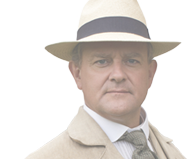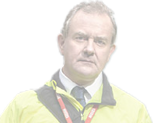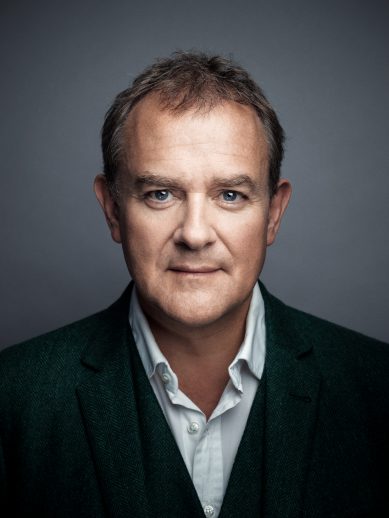Interview by Tim Dodd for Buzz Magazine
As Hugh Bonneville launches a new arts fund aiming to increase access to the arts in Wales, Tim Dodd spoke to the Downton Abbey and W1A star.
Why are you launching the National Youth Theatre Auditions Access Fund and what does it personally mean to you?
I was a member of the National Youth Theatre when I was a teenager and it changed my life. It nudged me in the direction that I ended up taking as a career. However, there are parts of the country that have no access to drama, in school or youth clubs, or that access is diminishing. There’s also a geographical hurdle to overcome for a lot of people. Obviously, there are great arts initiatives in Wales already, but the NYT really does pull people from all over the nation together, and that’s what makes it unique and valuable.
With that in mind, I thought it would be great to set up a fund that would specifically target these areas. It’s aimed at 14-25-year-olds who are passionate about drama, but who don’t have the access to it. We looked at different areas around the country, asked youth groups and schools to write in and explain why they felt they could benefit, and a couple of organisations in Pembrokeshire stuck out and said – without putting too fine a point on it – “we’re at the edge of Wales here, we have people with talent and passion, what we don’t have is opportunity.” In the New Year, when the NYT does its main auditions in Cardiff, Manchester, etc, we can also go to some places that don’t have that option or find the expenses too great. We’ll have a day of workshops on audition techniques and theatre techniques, and then there’ll be a day of auditions. For those who are successful, there’s the chance to apply for a bursary to spend three weeks in London at an NYT course, costs covered.
How long has the Auditions Access Fund been in the pipeline for you?
I set up the fund this year because I’m increasingly aware of the loss of arts education in schools. I was at a school in Kent the other day where there is literally no music at all. They have an art room, which is doing well, they have very keen English teachers, but they don’t have dedicated drama teachers or dedicated music teachers, and that’s a crying shame. Schools have had a lot of their funding diverted to meet statutory requirements.
Is such support to young aspiring actors a recent need or would you say it’s long overdue?
There has been a 20% fall in students doing A-level music since 2014, just in Wales, and that becomes a spiral. If you’re not training people how to be musicians, you’re not going to train music teachers – the same in drama. Twenty years ago, it was sport being taken out of schools, now it’s the arts. And what’re we going to end up with? People with no imagination, no means of self-expression and that concerns me.
Would you say that drama serves almost as a rite of passage for finding your voice, regardless of what that voice is for?
Absolutely. I think, as Mark Rylance said, we are a nation of storytellers, and it’s part of the human condition to share stories and to explore our imagination. We have intellect, we have the spirit of inquiry, of possibility, of creating art, and we undervalue that at our peril.
When I was at the NYT I was one of a handful of people who went into the profession. I never thought I was going to be an actor when I was in my teens, but it gave me an opportunity to explore the thing that I loved doing as a hobby, and gradually it became something I wanted to try as a career. That said, most of the people I was at the NYT with had no interest in becoming professional actors, but what it did do is develop their skills for later life. You’re doing a project as a collaboration, using disciplines, but at the same time you’re exploring your imagination, you’re learning techniques that will stand you in good stead in whichever walk of life.
What kind of support do you offer to NYT and the other causes you support, such as Scene & Heard, and The Primary Shakespeare Company?
Being a face on telly, and in films over the last few years, I do have the opportunity to shout about things that I care about and people like yourselves sometimes listen, which is very kind of you. I’ve been involved in various charities, but the ones where I actually have some kind of authority and voice are the ones involving the arts. My parents were keen theatre-goers, they loved musical theatre, opera; they dragged me to art galleries which bored the pants off me but I’m very glad they did in retrospect. But I’m aware that there’s a whole generation, or areas of the country that don’t have that privilege. Scene & Heard is a remarkable, tiny charity, in the centre of London in a particularly deprived area, that mentors young children from challenging backgrounds. They write 10-minute plays about inanimate objects, performed by professional actors, and the look on their faces when they get a round of applause for something they’ve written chokes you every time, because they don’t get applause in their lives, and this gives them a little building block of self-confidence.
Equally, The Primary Shakespeare Company introduces primary school children to Shakespeare – which you may think, my goodness, it’s challenging enough at secondary school! – but the teachers have told of the confidence it gives these children across the curriculum.
Could you tell us about the upcoming Downton Abbey film, and how this will differ from the TV series?
The Downton Abbey film picks up where the series ended. It nudges on in time a little bit, but we’re not reinventing the wheel, we don’t suddenly go off into outer space or do a huge time jump. Pretty much all of the cast has returned, which I think is a mark of how much we all got on! It’s a bigger scale of production – the set pieces are really big and we had a fabulous cinematographer, which really makes it feel more of a movie than the TV show ever did. Anna Robins, our costume designer, really excelled herself. On a big screen it’s going to look sumptuous.
Perhaps a big ask, but what character have you most enjoyed playing in your career thus far?
Oh golly. I’ve been so lucky to have played a whole variety of different characters, from Philip Larkin, to Ian Fletcher in W1A and Twenty Twelve, and of course Downton Abbey‘s got a tremendous place in my heart. I think probably the most challenging and the most fun, is something that most people haven’t heard of. I played Mr. Pooter in a show called Diary of a Nobody, which was a monologue, it was quite challenging just talking to the camera for days on end. And it’s a very funny diary of a clerk first published in the Victorian era that has never been out of print – a wry look at the middle-class chap trying to get on in the world.
The National Youth Theatre Auditions Access Fund launches in 2019, and will arrive in Haverfordwest, Pembrokeshire.
Info: www.nyt.org.uk/AAF









